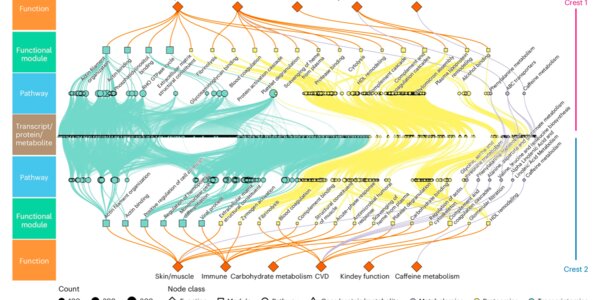Humans Age In Two Bursts, At 44 And 60
Aging is not a smooth and gradual process. For instance, around 6.5% of people aged between 40 and 59 have coronary artery disease, a prevalence which jumps to 19.8% for people aged 60 to 79.…









